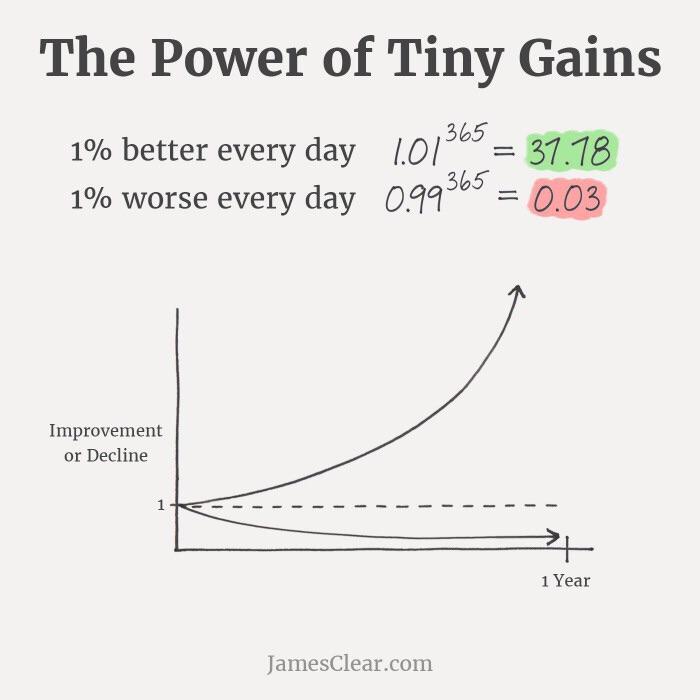Jon Brooks • • 14 min read
Why Do Most Relationships Fail? 6 Faulty Mindsets.

What is every great novel, play, movie, and TV show about?
Relationships.
Even the most introverted among us are highly-sophisticated social animals. We need relationships. We need to interact. We need intimacy.
I wrote an article a few months ago about Frog Boiling, where I explained how even the best relationships can imperceptibly become toxic over time.
In that article, I outlined Dr. Jordan Peterson’s “Six Things We Need To Thrive Psychologically.” They include:
- Reciprocal friendships
- An intimate relationship
- A career with a future
- A daily routine
- A robust, nourishing diet
- A healthy relationship with alcohol and drugs
The first two items in that list are directly about relationships, but the other items on the list are also tangentially about relationships.
How important is it to be able to interact well with others—to be able to have a career with a future? How many times have you heard the story of good people developing an unhealthy relationship with drugs because of the people they associate with? How much easier is it to get a good daily routine or a healthy diet if you have a partner that supports rather than sabotages you?
Your relationships shape your life.
So why do most relationships fail? That’s the million dollar question.
I have always struggled with relationships. Not all relationships. I have the best friends I could ever ask for. I get along with my family, but I struggle with romantic, intimate relationships.
It’s not that I keep getting dumped or my partner loses interest. It’s more that I tend to struggle psychologically. I lose my sense of self. I end up feeling a bit lost as the relationship progresses. I’m not “myself” anymore.
Symptoms of this identity loss might include: weight gain, less socializing, increased introversion, depression, and lack of productivity. I resent and blame my partner because of who I’ve become. I feel trapped, wanting to escape and often even lose interest in sex.
After yet another relationship in recent months where this same loss-of-self pattern emerged followed by a vicious breakup, I finally decided enough was enough. I had to figure out what was going on and solve my relationship issues once and for all.
How was it that I could be so happy when I was single, attract an amazing partner, and then over the ensuing months spiral downhill?
I did a lot of research and started studying my communication style. If only I could improve the way I talk about things, maybe that would solve all my issues. It helped a little bit, but it was not enough.
I continued researching and found a website called Reignite The Fire run by a guy called Rick Reynolds. I bought his relationship program and courses because I liked the sound of them, and I was in such a desperate place I was willing to give anything a go.
I had studied social dynamics, psychology, and human interaction for years, but there was a gorgeous simplicity to Rick’s work which I hadn’t come across before. He seemed to be speaking directly to me—about me—and understood my problem (always a good sign).
I put his teachings to use immediately. I messed up a lot at applying them in the beginning, but I kept trying and trying. After a couple of weeks, I started to see a change. My ex-girlfriend, who dumped me two months earlier, wanted to get back with me… actually, she said she wanted to marry me.
I felt extremely good in myself and started to thrive more than ever in the areas outside of my relationship. I now had a solution for my struggles. Rick’s teachings worked incredibly well for me. They were based on Rick’s own life experience, and further refined through his work with various clients. My hope is that they will also work for you.
The core of Rick’s relationship advice can be condensed into 6 core mindsets. Mindsets are like meta-principles. If you get the right mindset, everything else will follow suit. For example, if you get the mindset that “working hard and being disciplined is very important,” then even a poorly designed to-do list app will still work for you.
The other great thing about these mindsets is that they are primarily about you. It doesn’t matter if you are in a relationship or not. Even if you’re not in a relationship, these mindsets are first and foremost about you—about how you act in the world. Study, practice, integrate.
Relationship Mindset #1: It is better to be respected than liked.
About six months ago I completed the Dr. Jordan Peterson’s big five online personality test. It was a very eye-opening experience, and I learned a lot about myself. One of the most important things I learned was that I am highly agreeable. I scored in the 80th percentile for agreeableness, which means that in a room full of 100 people, I am more agreeable than 80 people in that room.
On my results page for the test, I found this write-up on agreeableness:
People with high levels of agreeableness are forgiving, accepting, flexible, gentle and patient. They feel pity for those who are excluded, punished or defeated. They tend to insist that people work cooperatively, and often believe that competition, with its losers and winners, is morally wrong. However, highly agreeable people can be taken advantage of, particularly by disagreeable people, including those with criminal or predatory intent. They will lose arguments (or even avoid discussions) with less agreeable people. They tend not to be very good at bargaining for themselves, or at negotiating for more recognition or power. They may have lower salaries and earn less money, in consequence. All of this can lead to resentment and hidden anger. Furthermore, because of their tendency to avoid or reduce conflict, highly agreeable people may sacrifice medium- to long-term stability and function for the sake of short-term peace. This can mean that problems that should be solved in the present accumulate counter-productively across time.
The test was accurate. I certainly am agreeable. I don’t like conflict. I don’t like arguments. I want everyone to get along, and I want to be liked. Most of the time being agreeable is a pretty solid strategy. I have the greatest friends I could ask for. But in a long-term intimate relationship, being too agreeable can be hugely problematic. Issues need to be discussed as they come up, and decisions need to be made early about important things. If you bite your tongue, walk on eggshells, or postpone important talks, authentic communication is blocked and silent resentment builds.
If you want your partner to like you rather than respect you, the sacrifices you make will compound over time. You may not say your true opinion here. You may not ask for what you want. You might bite your tongue and end up in a situation that you really didn’t want to be in, only to hate your life and blame your spouse as the relationship evolves.
When you start to value being respected over being liked, however, everything changes. There may be more conflict (especially as you first switch into this mindset), but over the long term, paradoxically, your partner will like you more.
If you don’t respect yourself, how can you be truly attractive? You cannot possibly be the best version of yourself if you wrap your whole identity up in the opinions of others.
Imagine your ideal future self. You are thriving in all the areas that you want to thrive in. Does this person respect themselves? Does this person stand up for their core values? Does this person value their own time, energy, and emotional wellbeing? Of course.
Many of your relationship problems will dissolve when you start aiming to be respected rather than liked. This does not mean be a jerk. You need a spine, but you also need a heart. All spine is a tyrant and all heart is a pushover, and the only people who want pushovers for partners are tyrants. Those personality types are best avoided in relationships.
To implement this mindset, start analyzing your interactions and attitudes. Read through your texts. Are you trying to be liked? Are you trying to please people at the expense of your soul? Stop it. Now, act in a way that is based upon a deep self-respect. Check in with yourself and ask: is this what someone who respects themselves would do? If the answer is no, do not do it. Simple.
Further reading:
- The Disease to Please: Curing the People-Pleaser Syndrome by Harriet Braiker
- Boundaries: When to Say Yes, How to Say No To Take Control of Your Life by Henry Cloud
- Getting to Yes: Negotiating Agreement Without Giving In by Roger Fisher
Relationship Mindset #2: Your world matters most.
One of the most toxic mindsets in a relationship is codependency. This mindset stems from trying to help or fix your partner’s issues at the expense of your own world and wellbeing. I have suffered from codependency my entire adult life, but I never realized until I read Rick’s work.
Codependency works as follows: In the beginning, your partner may tell you they have this issue or that problem, and you listen, offer advice, and try to help. You care about this person, you want to step in and control the outcome of their dilemma. Over time you find yourself taking on more and more of your partners’ problems and entering into the drama of their world. In the process, you leave behind your own world, and you stop taking care of yourself. Codependency is at its worse when one’s partner is a drug addict or alcoholic. You are always trying to control them, manage them, keep them healthy, and as a result, you suffer.
In the short term you help your partner, but in the long term, you hurt them and yourself for many reasons. One of the golden rules in psychotherapy is that you should not do something for someone that they could do for themselves. It takes away a person’s agency and a sense of accomplishment if everything is being done for them. It stops them from learning to be independent. And beyond this in a relationship, nobody wants a therapist or a helper for a partner. That’s not sexy or strong. We want partners who have cool lives, who we can brag to our friends about, who care about us but also value and respect themselves.
I like to think that throughout relationships, we are met with “codependency tests.” These tests, typically initiated by your partner, either make you more codependent or more independent depending on how you perform in the test. A simple and subtle one would be as follows:
Your partner wants to have a lazy pajama day with you and stay in bed and watch TV and eat ice cream for the next few hours, but you had plans to go to the gym. What do you do?
Going to the gym, in general, requires willpower — but now you need even more. You’re having an amazing time in bed. You feel so validated. You don’t even care about your body or fitness. Your partner loves you just the way you are. And they will feel rejected if you go to the gym instead of staying with them. Isn’t this a tricky situation?
Not really.
You should still nearly always go to the gym if that was your plan and that will move you closer to your goals in life. On a deeper level, this is an unconscious biological codependency test. Your partner is testing how committed you are to your own world and wellbeing. They want to see how easily you can be led astray from your purpose. They want to see if you really crave short-term validation over long-term fulfillment. It’s a silly game we play in relationships, but the consequences are serious.
If you fail tests like this, you become more codependent. You reinforce the habit of giving in to feel good, making you more of a procrastinator. But worst of all, if you keep failing tests like this your partner will end up pushing you away because you’re just way less attractive when you lose your purpose. You don’t have your own stuff going on anymore—you sub-communicate that your primary purpose in life is the relationship. Neediness from either sex is unattractive. When your partner knows that you are able to walk away if you’re not happy, you become more valuable and many of the relationship “issues” just disappear.
Think of it like this: If someone starts dating the rapper Eminem, they may get a little bit sulky when he has to go to the studio to record, but if he didn’t, he wouldn’t be Eminem! It would feel so validating if Eminem stopped putting his world first and entered yours, but a few months of this and he would no longer be the person you fell for.
Excluding activities that you did to meet a new partner, is your lifestyle when you were single drastically different from your lifestyle now? Investigate why.
If you are bending over backward for your boyfriend or girlfriend, it will not make things better, only worse. Be considerate and compassionate. You don’t devalue your partners’ world by putting yours first. You put your own world first because you realize that it is the best strategy for you, your partner, and the world at large if you are functioning at your best. Your partner will appreciate and respect that in the long run.
Relationship Mindset #3: Actions speak louder than words.
This has been a game changer for me and has answered that question why do most relationships fail… Very often, we get hung up on the exact words people use. Someone says they think this, believe that, want this… but are they acting in accordance with those claims? If not, they are not being truthful. Actions speak louder than words.
A thought experiment I told a friend to consider once:
Imagine a CCTV camera looking down on you from above. It watches everything you do at home, day in and day out. There is no sound. You can only see your behavior. Based on that video, would you conclude that your behavior is aligned with your goals and values? Does what you say you want and think match up with how you act? If not, are they really your goals? What do you really want or believe? You say you want to be rich, but you’re not working. Do you want to be rich? Clearly not.
One of the great mantras I love is “Intentions equal results.” The idea of this is very similar to “actions speak louder than words.”
In your relationships, start to examine your and your partner’s intentions and actions rather than the mere words. Stop looking at the promises and I-love-you-statements and instead look at actions. Is your partner showing commitment? Is your partner showing loyalty? Is your partner showing that they want to grow? Is your partner showing that they want to be a better person each day, or are they just saying things that sound good?
With the “actions speak louder than words” mindset, you will stop getting so hung up on both the positive and negative things people say and instead just look at what they do. This will allow you to see the behavioral matrix with more clarity and make far better decisions.
If you’re having an insecure moment in a relationship because of something that’s being said or not said, zone in on the signs of behavioral commitment your partner has displayed. If you have cuddled and slept with your partner, but they aren’t saying nice things about your new haircut… so what? Actions speak louder than words. And vice versa: if your partner is telling you that you’re the one, they love you, but they keep ditching you to go out with friends then something isn’t adding up.
Relationship Mindset #4: It’s not about trying to win. It’s about being a winner.
A trading expert presenting a talk was asked by someone in the crowd:
“How can a losing trader turn themselves into a winning trader?”
His response was brilliant:
“They can’t. That’s what winning traders do.”
It’s very deep. The answer means that one who views themselves as a loser who’s trying to win will maintain the identity of a loser. Instead of trying to win, be a winner.
If an unhealthy person does something healthy, that does not make them a healthy person. It’s about who you are. It’s about being, not doing. It’s about stepping up and seeing yourself in the mirror as someone with self-respect, integrity, dignity, and motivation.
In relationships, if you are constantly trying to “fix things” or be more attractive or sexy, you are coming at it all wrong. You need to be the person you know you’re capable of being, not just act like it. You need to value yourself and recognize that even though you may have ups and downs, you are in the end still a winner.
Even if you “lose” you can still be a winner. Take a look at Connor McGregor’s post-fight interview here. Even though he lost, he still acts like a winner in defeat. He ended up winning the comeback fight:
Relationship Mindset #5: Small improvements lead to massive changes.
Everyone seems to be looking for a magic bullet. People want the next app that will help them magically cure procrastination; the supplement that can double their IQ; the diet that will help them lose weight without feeling hungry; the special trick that will help revitalize their marriage.
Sadly, there are no magic bullets in life. Change takes time and thousands of incremental improvements. Before you feel all demotivated and depressed about this fact, realize this isn’t bad. Pursuing and attaining goals are directly linked to the dopaminergic system, which is what makes us feel happy and alive.
Aiming to be just 1% better each day, will lead to massive changes over time. That’s much better than rushing to make huge changes only to fail.

A relationship or marriage is a constant work in progress. True love begins where movies end. After the lustful honeymoon period ends, you are left with the real person. You are left with the dishes, the cooking, the children, the way you greet each other, the way you make love, the way you hold hands, the habits you do or don’t do. These areas seem small, but when improved they will lead to massive gains.
If you follow the advice in this post and focus on making small changes, you will be able to never leave the honeymoon period. You will not fall into codependency or laziness. Your relationship will not fizzle out. But it takes work.
Relationship Mindset #6: When you look good, you feel good.
This may seem like a superficial mindset, but it’s not. When we take care of ourselves through grooming, hygiene, clothing, fitness, etc., we feel better and we respect ourselves more.
Beyond this, if you look after yourself, try to age well, and aim to cultivate a physique you feel proud of, your partner’s physical attraction to you will remain high. After all, we live in a social media society. People show their partners off on their phones. You don’t need to be a supermodel, but you shouldn’t look scruffy and dirty.
This image shows the power of self-presentation in our online world:

Your workouts will also help you see how much you’re remaining independent. So when it comes to that question, why do most relationships fail?… If you look at relationships, often people start to gain weight and get lazy as soon as they enter one.
When you act out the mindset “when you look good, you feel good,” you automatically hit the other mindsets:
- You respect yourself by being healthy.
- You’re putting your world first.
- Your actions speak louder than words, you’re taking action for yourself.
- You show up to the gym and make it who you are.
- The small improvements you make lead to huge changes.
Note: If you want to improve your body and health through exercise and nutrition, I would highly recommend these books. They are the best I’ver ever read on nutrition and training.
Most Relationships Fail Because They Do Not Integrate These Relationship Mindsets
To integrate the mindsets, you will need repeated exposure to them, practice in a relationship, and reflection on your application. I could walk you through this personally, but for now, I would suggest you just choose three mindsets to work with:
- It’s better to be respected than liked.
- Your world matters most.
- When you look good you feel good.
Clean up your diet, join a gym, start taking more pride in your appearance and hygiene. Make some kind of daily checklist that you can use to ensure you do the bare minimum each day.
For the mindsets “It’s better to be respected than liked” and “Your world matters most,” I made a reminder on my phone that would display these messages every few hours just so I would get a refresher on them. You could do that or something similar like set those phrases as your phone background or just read them throughout the day aloud.
When it comes to reflection, just keeping an evening journal would be a great idea. You could just spend 5 or 10 minutes asking yourself the following questions:
- Where did I seek approval in my interactions today?
- Where did I act with self-respect today?
- Where did I sacrifice my own needs for others today?
- Where did I put my own world first today?
- What can I do tomorrow to improve upon today?
Do that small task every night and you will have massive changes in a few weeks in your relationships.
Follow Jon Brooks on Facebook.

Jon Brooks
Jon Brooks is a Stoicism teacher and, crucially, practitioner. His Stoic meditations have accumulated thousands of listens, and he has created his own Stoic training program for modern-day Stoics.










